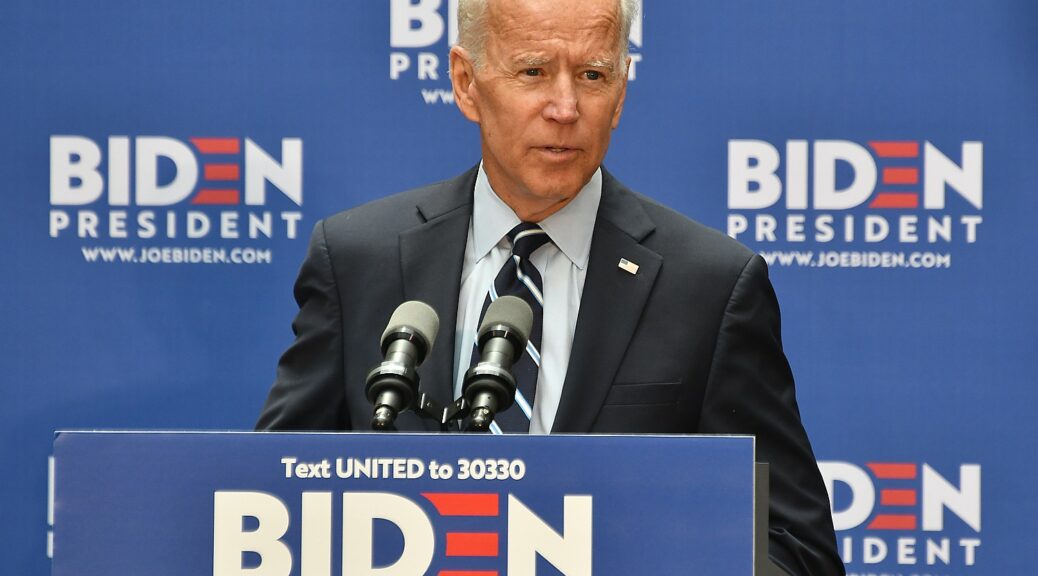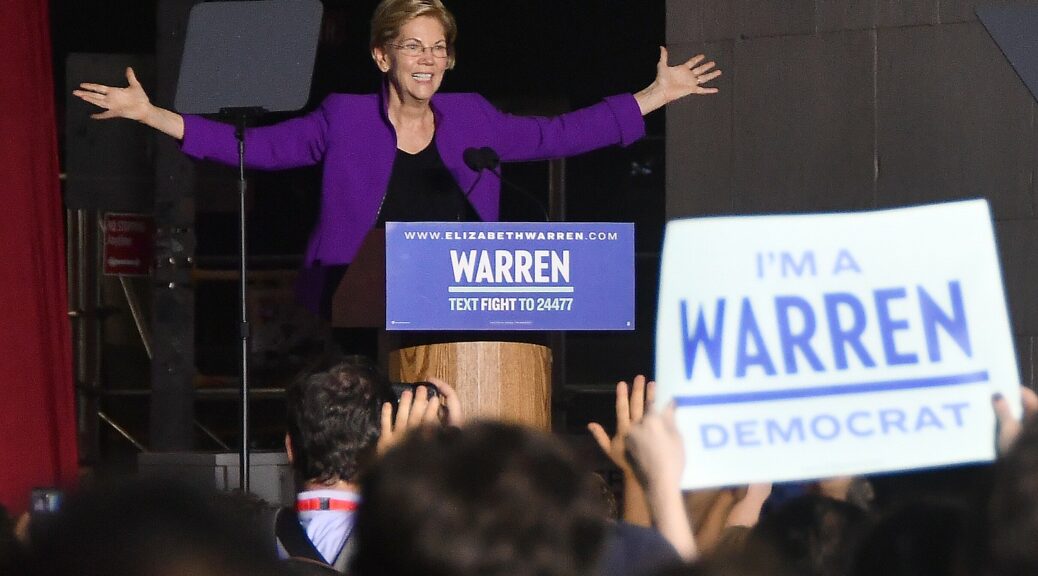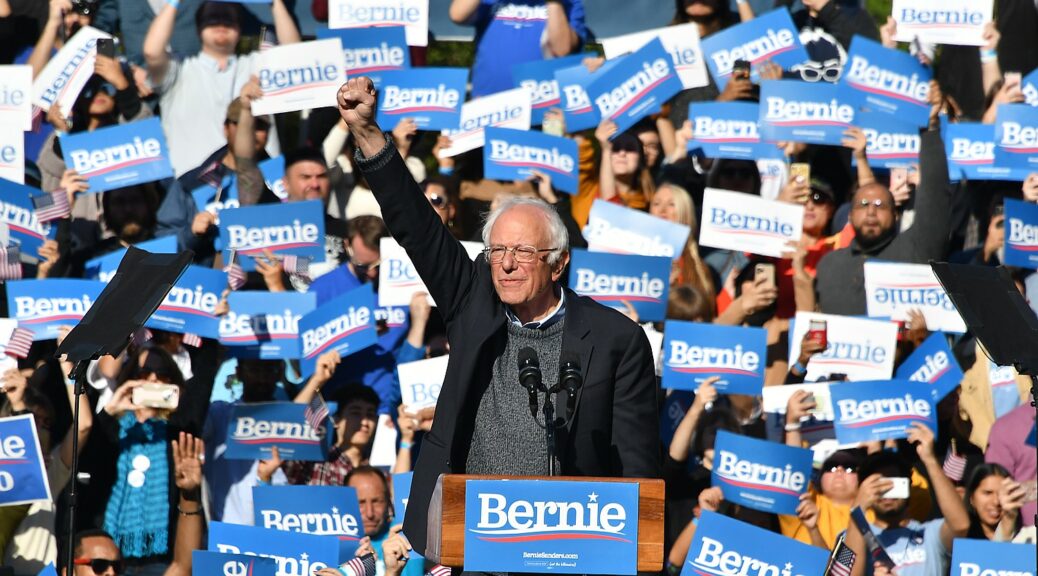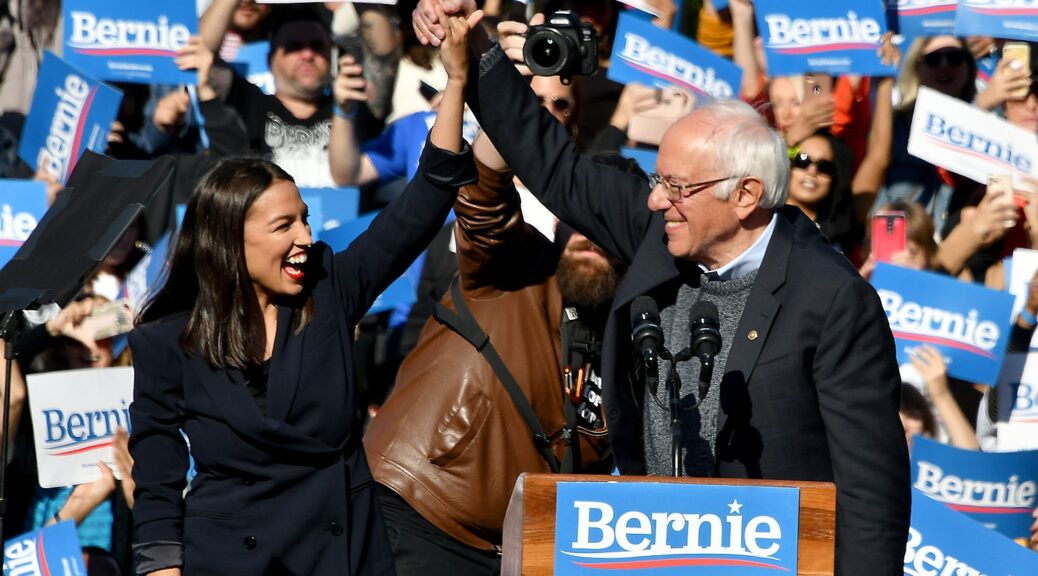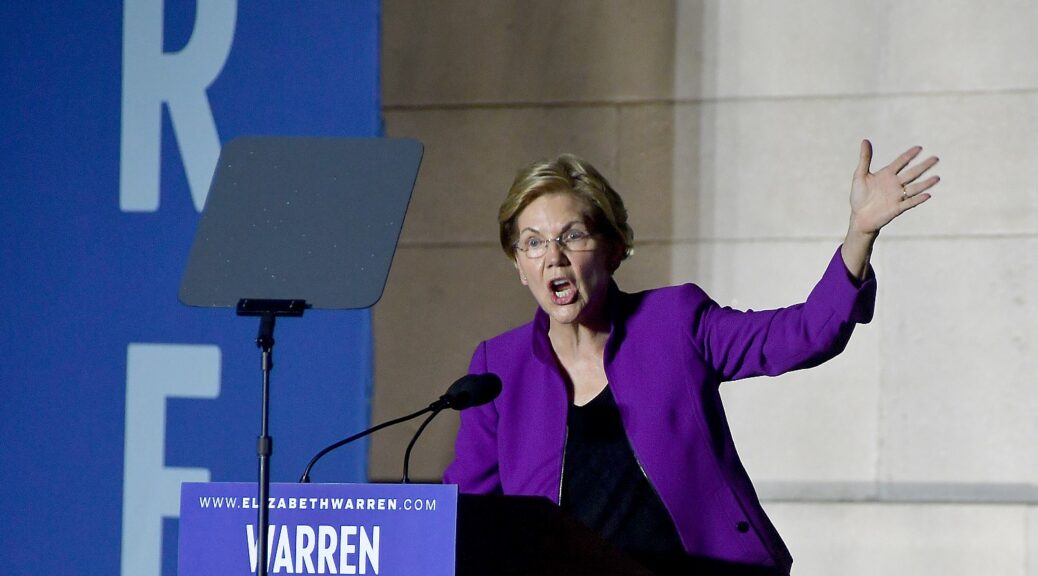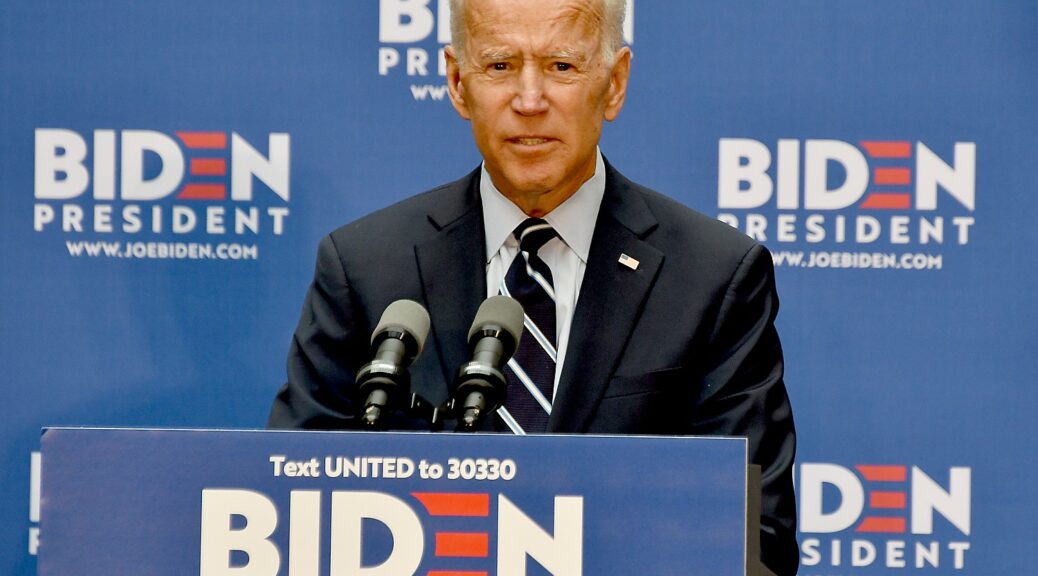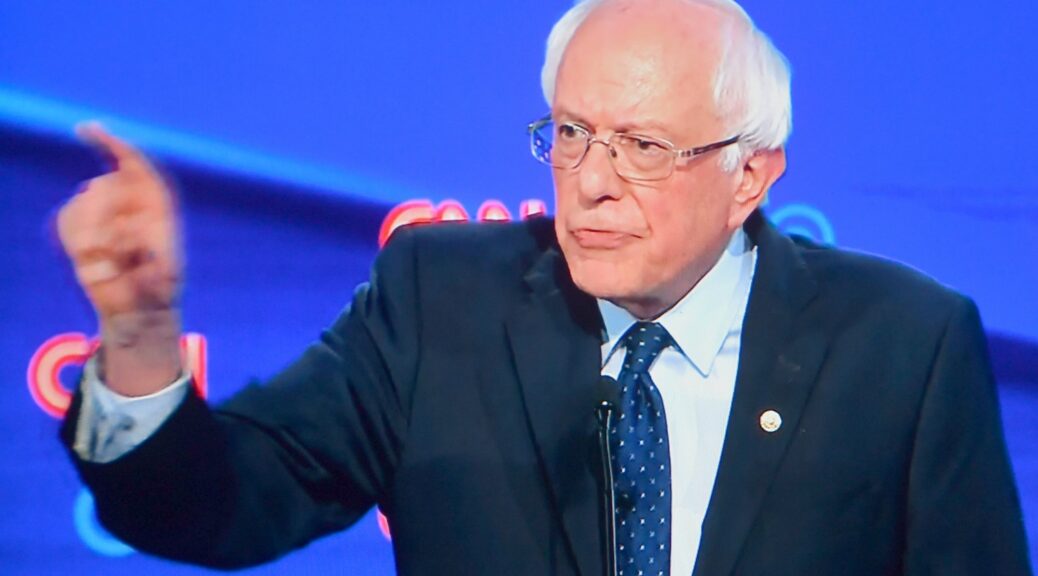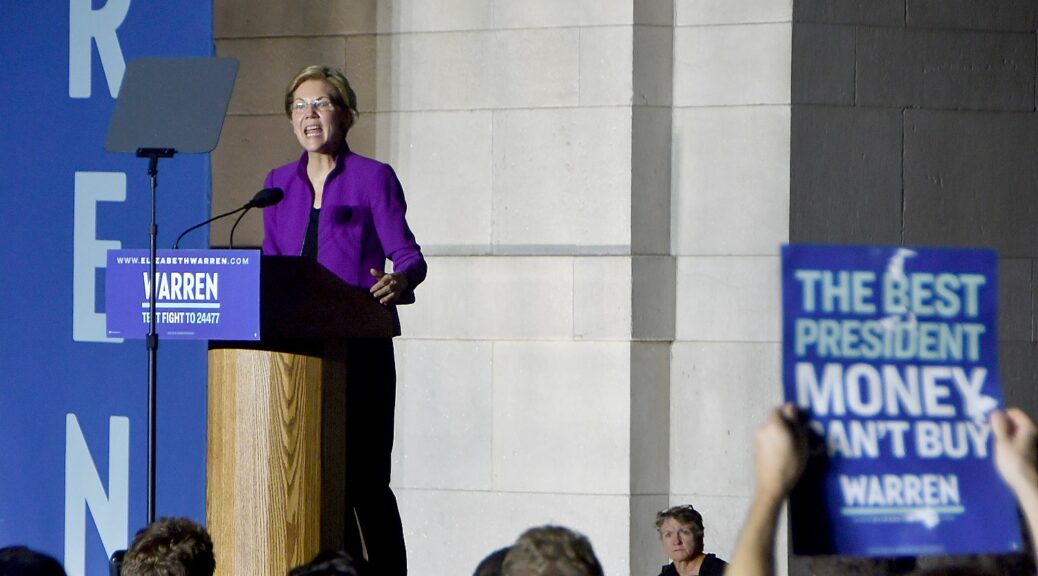
The vigorous contest of Democrats seeking the 2020 presidential nomination has produced excellent policy proposals to address major issues. Former Vice President Joe Biden, seeking the 2020 Democratic nomination for president, is proposing an ambitious campaign finance plan to guarantee that government works for the people and not for special interests. Biden has been criticized, however, for his recent announcement, in face of low campaign cash on hand, that he would accept money from Super PACs.
This is from the Biden campaign:
“Donald Trump has presided over the most corrupt administration in modern history. Trump has abused the presidency to enrich himself — spending countless tax dollars at his own properties. Members of his administration have failed to divest themselves from conflicts of interest as promised. Trump has weaponized the Executive Branch against its core mission, including using the U.S. Justice Department to protect the president and his interests, over the American people and the rule of law. And, Trump has welcomed wealthy special interests — including the National Rifle Association — into the Oval Office and to the highest levels of his administration to develop and guide policy.”
Biden will strengthen our laws to ensure that no future president can ever again abuse the office for personal gain.
As president, Biden will:
Reduce the corrupting influence of money in politics and make it easier for candidates of all backgrounds to run for office;
Return integrity to the U.S. Department of Justice and to Executive Branch decision-making;
Restore ethics in government;
Rein in Executive Branch financial conflicts of interest; and
Hold the lobbyists and those they lobby to a higher standard of accountability.
Highlights from Biden’s plan include:
Biden will introduce a constitutional amendment to entirely eliminate private dollars from our federal elections. This amendment will do far more than just overturn Citizens United: it will return our democracy to the people, away from the corporate interests that seek to distort it. While we work toward a constitutional amendment, meaningful change can be made by legislation. Biden will propose legislation to provide public matching funds for small dollar donations to all federal candidates. Biden has advocated for public financing of federal campaigns since the very beginning of his Senate career. He first co-sponsored legislation to create a public financing system for House and Senate candidates in 1973.
Biden will block any future president or anyone else in the White House from interfering with decisions about who or what to investigate and prosecute. On day one, Biden will issue an Executive Order directing that no White House staff or any member of his administration may initiate, encourage, obstruct, or otherwise improperly influence specific DOJ investigations or prosecutions for any reason; he will commit to terminating anyone who tries to do so. Biden will also enact legislation giving the DOJ Inspector General full power to investigate any allegation of improper partisan influence on DOJ investigations and prosecutions; and requiring the IG to report in detail to Congress any time such an allegation is substantiated.
Biden will establish the Commission on Federal Ethics (CFE), a single government agency empowered to oversee and enforce federal anti-corruption and ethics laws. CFE will have the authority to enforce its own subpoenas and to refer matters for criminal investigation to the DOJ, as well as an obligation to report to the public when DOJ has chosen not to proceed with that referral. It will be tasked with tightening existing loopholes that let public officials hide assets in discretionary trusts, or let lobbyists cloak influence campaigns in vague disclosures. And, CFE will be tasked with establishing ethics.gov, a new one-stop destination with all campaign finance, financial disclosure, and lobbying information all in one place.
Biden will expand and strengthen lobbying disclosure laws, requiring the office-holder in addition to the lobbyist to disclose the meeting. And, Biden will require Members of Congress to disclose any legislative language or bill text submitted by any lobbying party. Additionally, Executive Branch officials will be required to disclose any regulatory text submitted by any outside entity.
Biden will bar lobbying by foreign governments; and will require that any foreign business seeking to lobby must verify that no foreign government materially owns or controls any part of it.
Biden will enact legislation that requires all candidates for federal office disclose returns dating back 10 years prior to the date they declared their candidacy for their first federal office.
FACT SHEET:
THE BIDEN PLAN TO
GUARANTEE GOVERNMENT WORKS FOR THE PEOPLE
REDUCE THE CORRUPTING
INFLUENCE OF MONEY IN POLITICS
Biden strongly believes that we could improve our politics overnight if we
flushed big money from the system and had public financing of our elections.
Democracy works best when a big bank account or a large donor list are not
prerequisites for office, and elected representatives come from all backgrounds,
regardless of resources. But for too long, special interests and corporations
have skewed the policy process in their favor with political contributions.
Biden has advocated for public financing of federal campaigns since the very
beginning of his Senate career. He first co-sponsored legislation to create a public financing system for
House and Senate candidates in 1973. In 1997 and many years afterward, he co-sponsored a constitutional amendment that would have limited contributions as
well as corporate and private spending in elections and prevented the damage
caused by the Supreme Court in Citizens United.
Biden will reform our campaign finance system so that it amplifies the voices
of the public, not the powerful — particularly the voices of working Americans.
Under his leadership, our system will make sure that the principles of
equality, transparency, and public — not private — interest drive all
government decisions. Toward those ends, Biden will:
Introduce a constitutional amendment to entirely eliminate private dollars from our federal elections. Biden believes it is long past time to end the influence of private dollars in our federal elections. As president, Biden will fight for a constitutional amendment that will require candidates for federal office to solely fund their campaigns with public dollars, and prevent outside spending from distorting the election process. This amendment will do far more than just overturn Citizens United: it will return our democracy to the people and away from the corporate interests that seek to distort it.
Enact legislation to provide voluntary matching public funds for federal candidates receiving small dollar donations. While we work toward a constitutional amendment, meaningful change can be made by legislation. Biden will propose legislation to provide public matching funds for small dollar donations to all federal candidates. This will especially help first-time candidates access the resources needed to compete, freeing them to focus on interacting with voters, not high-dollar donors.
Keep foreign money out of our elections. Biden will propose a law to strengthen our prohibitions on foreign nationals trying to influence federal, state, or local elections. He will direct a new independent agency, the Commission on Federal Ethics (discussed in detail below), to assure vigorous and unified enforcement of this and other anti-corruption laws. The Commission will establish robust disclosure requirements, so that any online electioneering communication that originates abroad is identified and flagged.
Restrict SuperPACs. The Supreme Court’s decision in Citizens United is wrong and should be overturned by a constitutional amendment – but we can’t wait to limit its pernicious effect. As president, Biden will work to enact legislation ensuring that SuperPACs are wholly independent of campaigns and political parties, from establishment, to fundraising and spending.
Increase transparency of election spending. Our campaign finance law is outdated, and Biden will update it to reflect the modern era. Too often, candidates and their allies now use online platforms like Facebook and Twitter to spread misleading or outright false ads that are micro-targeted to certain populations and unrecognized by the press. Biden will propose legislation codifying what should be a simple tenet of campaign finance law: any group that advocates for or against candidates for federal office in its ads or communications must disclose its contributors. No more hiding behind “dark money” groups to spread lies. This law will require all online ads, how they’re targeted, and who paid for them to be posted by the groups to a public database on a new one-stop website, ethics.gov — so no one can target voters with misinformation without attracting media or political attention.
End dark money groups. Federal law recognizes “social welfare” groups, also known as 501(c)(4)s, which were intended to advocate for specific causes. But after Citizens United, they’ve increasingly been used as dark money groups — spending hundreds of millions of dollars on federal and state elections without disclosing their donors. Biden will enact legislation to bar 501(c)(4)s from spending in elections – the same bar that applies to Section 501(c)(3) charitable groups. He’ll also lead reform of the Federal Election Campaign Act, to ensure that any entity of any kind that spends more than $10,000 on federal elections must register with the Commission on Federal Ethics and publicly disclose its donors.
Require real time disclosure. Today, voters have to wait until after an election to fully learn who spent money to influence their decision. Biden will propose legislation to change that, by requiring campaigns and outside entities that run ads within 60 days of an election to disclose any new contributions within 48 hours.
Ban corporate PAC contributions to candidates, and prohibit lobbyist contributions to those who they lobby. Biden will ensure that lobbyists and corporate PACs do not play a role in our elections. Biden’s presidential campaign is refusing any funding from lobbyists and corporate PACs. As president, he’ll enact legislation to bar lobbyists from making contributions to, and fundraising or bundling for, those who they lobby. This legislation will be designed to ensure that the public knows as much as possible about the political spending of those who seek to influence officeholders and other government officials. Any lobbyist contribution must be disclosed within 24-hours, and any lobbyist-hosted fundraising event must be disclosed before it occurs.
Reform funding for national party conventions. Biden will propose legislation establishing that any political party that receives more than 5% of the national vote should have its national convention publicly financed. Primaries — and the conventions that certify their results — are good for democracy. Conventions should be, too. They should not be funded by corporate or monied interests.
Close the federal contractor loophole. As president, Biden will close the loophole that currently allows officers and directors of federal contractors to contribute to federal candidates. If you make money from government contracts, you should do so on merit — not because of campaign spending.
RETURN INTEGRITY TO THE
DEPARTMENT OF JUSTICE AND OTHER EXECUTIVE BRANCH DECISION-MAKING
The Attorney General and the rest of U.S. Department of Justice (DOJ) serve and
protect the American people, not the private and political interests of the
president. The same is true for other Executive Branch agencies. Yet time after
time, President Trump has improperly sought to use DOJ to attack his political
opponents and to shield him, his family, and his associates from any meaningful
oversight or investigation. Trump has asked DOJ to prosecute Democrats and
others who disagree with him; he has enlisted DOJ in his effort to keep his tax
returns from seeing the light of day; and he has attacked the hard-working
career prosecutors and agents who devote their lives to public service.
Trump has weaponized the DOJ against laws enacted by Congress and supported by
the public — like the Affordable Care Act, which has given more than 20 million
Americans access to health insurance that they lacked before. He has
similarly used his appointments and executive orders to ask Executive Branch
agencies to stray from their mission — directing the Department of Health and
Human Services to dismantle, rather than enforce, the Affordable Care Act and
asking the Environmental Protection Agency to excuse polluters, rather than to
ensure clean air and clean water for the American people, as the law
requires. It’s wrong.
To maintain the rule of law, and to bring integrity back to our justice system
and government, Biden will take aggressive action, including:
Prevent the president or White House from improperly interfering in federal investigations and prosecutions. Biden will work to block any future president or anyone else in the White House from improperly interfering with decisions about who or what to investigate and prosecute. Those decisions must be based on the facts and the law alone, free from political or partisan influence. The president can set broad enforcement priorities, but he or she should never tell DOJ which specific people or companies to investigate or prosecute. On day one of his presidency, Biden will issue an Executive Order directing that no White House staff or any member of his administration may initiate, encourage, obstruct, or otherwise improperly influence specific DOJ investigations or prosecutions for any reason; and he will pledge to terminate anyone who tries to do so. Biden will also enact legislation giving the DOJ Inspector General full power to investigate any allegation of improper partisan influence on DOJ investigations and prosecutions; and requiring the IG to report in detail to Congress any time such an allegation is substantiated. And, Biden will work with Congress to strengthen our whistleblower laws, so that any federal employee who learns of an improper attempt to influence a DOJ investigation or prosecution knows how to report it and receives full protection against retaliation by anyone, including the president. Those reforms will also ensure that all such reports are transmitted directly to the Congress.
Increase transparency in DOJ decision-making. Biden will make DOJ policies and practices more transparent and accessible to the public. Too many of the Trump Administration’s worst decisions – whether claiming that the Affordable Care Act is unconstitutional or that DACA is illegal – were made without grounding in the law. Biden will require DOJ to report and explain in detail any change in position on a significant legal issue to Congress and the public.
Empower agency watchdogs to combat unethical behavior. Biden will strengthen Inspectors General laws — which established watchdogs in nearly every Executive Branch agency — to give IGs the full subpoena power and independence they need to investigate and publicize any official’s actual or attempted improper conduct. Inspectors General must be given the express authority to prevent, investigate, and disclose all violations.
Prohibit improper interference in agency matters. Biden will ensure that agency decisions on specific matters, like awarding government contracts or granting government permits, are based on merit and expertise, not on political preferences. Biden will issue an Executive Order prohibiting anyone in the White House from interfering with federal agencies on these matters, and he will require the White House to disclose to the public if any corporation, individual, or other entity tries to solicit White House help. This information will be aggregated and made public by the Commission on Federal Ethics.
Empower DOJ to enforce the law. Biden will ensure that DOJ has the resources and authority to enforce our laws, including those the Trump Administration has told career prosecutors and agents to ignore – laws that protect our voting rights, make discrimination illegal, and protect the environment. And, Biden will re-commit the Department’s Civil Rights and Energy and Natural Resources divisions to their missions.
RESTORE ETHICS IN
GOVERNMENT
For the eight years of the Obama-Biden Administration, there was not a hint of
scandal. The administration established the most stringent ethics code ever
adopted by any White House. Its procedures ensured that all decisions were made
on the merits, without bias, favoritism, or undue influence. President Obama
and Vice President Biden set clear expectations that the ethics code and
existing law must be followed.
The Trump Administration has shredded those standards. Trump is accepting
foreign emoluments, and has disregarded his pledge not to expand his business
overseas. And, Trump is using the federal government to prop up his resorts
with countless tax dollars.
Many of our imperfect yet essential government ethics laws trace their origins
to the country’s response to Watergate. As president, Biden will ensure that
the country’s response to the Trump Administration’s violations is even more
aggressive. Specifically, Biden will:
Establish the Commission on Federal Ethics to more effectively enforce federal ethics law. Biden will propose and enact legislation establishing a single government agency empowered to oversee and enforce federal anti-corruption and ethics laws. Today, existing law is a patchwork of subject-matter-specific mandates, overseen by agencies that often lack the authority to demand and receive compliance. And, public data tracking who is trying to influence our elected officials is equally patchworked and hard to find. This commission will make all information about how certain interests are seeking to influence our government easily accessible.
The office will have broad investigative and civil enforcement authority, expanding on powers now held by the FEC, OGE, and the Office of Special Counsel. It will have the authority to enforce its own subpoenas, ending the Trump Administration’s illegal stonewalling. It will have the power to refer matters for criminal investigation to the DOJ, and an obligation to report to the public when DOJ has chosen not to proceed with that referral. And it will be tasked with tightening existing loopholes that let public officials hide assets in discretionary trusts, or let lobbyists cloak influence campaigns in vague disclosures.
In addition, the Commission on Federal Ethics (CFE) will be tasked with establishing an ethics.gov, a new one-stop destination for Americans interested in learning about the elected and appointed officials who serve them, and those who seek to influence that service. It will compile campaign finance, financial disclosure, and lobbying information all in one place — and, as detailed in this plan, that information will be more comprehensive than ever.
CFE Structure: To avoid the stalemate that afflicts some agencies today, CFE will be run by a five-member Commission, appointed by the President and confirmed by the Senate, with no more than three commissioners from the same political party. Commissioners will hold office for staggered 10-year terms across presidential administrations, removable only for cause. Nominations to the Commission will be suggested by a blue ribbon panel of former prosecutors, judges, and state regulators. Only those with experience in prosecuting public corruption or regulating ethics and campaign finance will be eligible for appointment.
To monitor CFE effectiveness, and to ensure that it responds to all threats to ethical and transparent government, the Office will be advised by an 11-member CFE Oversight Board, comprised of bipartisan experts in ethics, campaign finance, and open government. The Board will report to CFE twice annually with recommendations on how to strengthen ethics enforcement; when the Board recommends updates, CFE will be bound to consider them publicly and to explain if any are not followed.
Require that all candidates for federal office release tax returns dating back 10 years prior to the date they declared candidacy for their first federal office. Many Senate committees require nominees for Cabinet-level positions to provide their tax returns for inspection – because knowing how a person has earned their living can inform decisions on their suitability for office. If we require that of appointed officials, why do we expect less of elected-office seekers? The past 21 years of Biden’s federal tax returns have been released, open to inspection by voters and the media. As president, Biden will enact legislation requiring that every candidate for federal office disclose returns dating back 10 years prior to the date they declared their candidacy for their first federal office.
Expand on and codify into law the Obama-Biden Administration ethics pledge. On day one, Biden will issue an ethics pledge, building and improving on the Obama-Biden Administration’s pledge, to ensure that every member of his administration focuses day-in and day-out on the best outcomes for the American people, and nothing else. The pledge will address not only the improper influence of lobbyists, but also any improper or inappropriate influence from personal, financial, and other interests – ensuring an extra layer of review and scrutiny whenever policy proposals or recommendations come from a conflicted source.
REIN IN EXECUTIVE BRANCH
FINANCIAL CONFLICTS OF INTEREST
President Trump is using the Presidency to enrich himself. His Cabinet is full
of members who’ve failed to follow through on promised divestments or recusals.
Biden will renew public confidence in our democracy by ensuring that everyone
in a position of public trust eliminates even the appearance that their
financial holdings could influence decision-making.
As president, Biden will:
Prevent the president and other senior Executive Branch members from being influenced by personal financial holdings. No member of the Biden Administration will be influenced by personal financial holdings. As President, just as he did as Vice President, Biden will hold only Treasury bonds, annuities, mutual funds, and private residential real estate; likewise, any retirement plans benefiting Joe or Jill Biden will be in large-cap mutual funds. By Executive Order, Biden will demand strict compliance with ethics agreements that he will demand of each of his Cabinet and other senior administration officials. And, he will enact legislation strengthening these practices, so we’re never again exposed to self-enrichment like that seen in the Trump Administration.
Extend this standard to U.S. House and Senate members. Biden will work with Congress to enact legislation to apply similar standards to its members.
Eliminate the trust loophole in existing financial disclosure law. The Ethics in Government Act requires candidates for federal office and senior Executive Branch officials to disclose their assets. It aims to give the public, media, and other government officials a chance to identify potential conflicts, and to demand recusal where appropriate. But candidates and public officials often transfer assets into trusts controlled by family members or close friends, and then disclose just the existence of the trust rather than the assets it holds. This loophole has allowed many senior officials — including President Trump — to avoid disclosing significant financial interests. Biden will work with Congress to close this loophole; and will meanwhile require that any member of his Administration who is a beneficiary of a discretionary trust disclose all of its holdings.
HOLD THE LOBBIED AND
LOBBYISTS TO A HIGHER STANDARD OF ACCOUNTABILITY
Our government should operate in the public interest—making decisions on the
merits, and not to meet the demands of well-heeled interests. The public has a
right to know when lobbyists meet Members of Congress and Executive Branch
officials; it should know with whom they speak, and about what. What’s more,
lobbyists often provide draft legislative or regulatory language they hope to
be enacted. That information should be made public, too. Today, our lobbyist
regulations are filled with loopholes and only lobbyists and the corporate
interests they represent are required to disclose far too little.. It is time
that we strengthen our lobbyist rules and hold public officials accountable by
making sure they meet these higher standards too.
As president, Biden will:
Hold elected officials accountable for public transparency of lobbying meetings. Existing lobbying law focuses primarily on the people who are doing the lobbying. It is time the law expanded to include the public officials who are the subject of lobbying. If your Senator or Representative is meeting with a special interest group, you should know. If the Secretary of Education is making decisions about student debt after dozens of meetings with lenders, you should know that, too. Biden will expand lobbying disclosure laws, so the obligation for transparency falls on the office-holder, as well as on the lobbyist. Specifically, Biden will propose legislation to require elected officials to disclose monthly any meetings or communications with any lobbyist or special interest trying to influence the passage or defeat of a specific bill – whether seeking the officeholder’s vote, or assistance in introducing or developing legislation. Under the Biden plan, members of Congress will be required to disclose any legislative language or bill text submitted by any lobbying party. Executive Branch officials will be required to disclose any regulatory text submitted by any outside entity. And, members of Congress and senior executive branch officials will be required to develop and disclose any access policy they have that governs requests for appointments. The CFE will make all of that information publicly available. If an office-holder believes that meetings with particular entities serve the public, let them explain why.
Make lobbying disclosure meaningful. Lobbying law should effectively inform the public and discourage conduct that distorts government decision-making. But current law does neither. Disclosure requirements are riddled with loopholes, so lobbyists can coordinate a PR campaign without ever disclosing their work. Detailed campaigns can be shielded by vague references to lobbying a chamber of Congress. Influencers are free to disclose only general information about the laws and regulatory activity they are trying to shape, without revealing specifics. Biden will lower the threshold for when those seeking to influence government decisions must register as “lobbyists” — to include anyone who earns more than $1,000 annually to be involved in developing or overseeing a lobbying strategy. The law will require them to disclose in detail exactly what they’re doing: with whom they’re meeting, the materials they’re sharing, any specific legislative (or regulatory) language they are proposing, and precisely what outcomes they’re seeking.
Prohibiting foreign governments’ use of lobbyists. There is no reason why a foreign government should be permitted to lobby Congress or the Executive Branch, let alone interfere in our elections. If a foreign government wants to share its views with the United States or to influence its decision-making, it should do so through regular diplomatic channels. The Biden Administration will bar lobbying by foreign governments; and it will require that any foreign business seeking to lobby must verify that no foreign government materially owns or controls any part of it.
Ensure truly public access. In Washington, the ability to schedule a meeting with an elected official or his or her staff is a form of currency. Under the Biden plan, members of Congress and senior Executive Branch officials will be required to develop and disclose to the public any policies that their office has instituted on when to accept or prioritize appointments. In addition, Biden will return to the Obama-Biden Administration practice of disclosing White House visitor lists.

